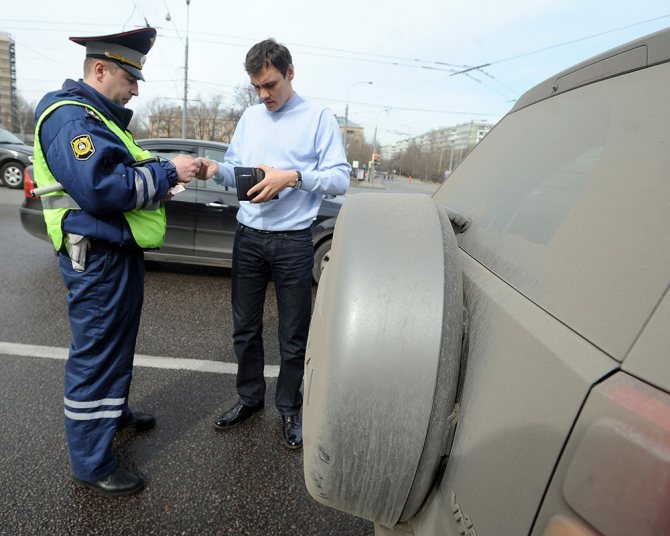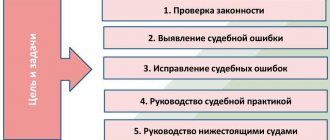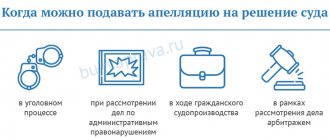Where to appeal a traffic police fine
find_in_page
Articles on the topic
(click to open)
- How to challenge or appeal a traffic police fine from a camera
Where to write an application to appeal a traffic police fine (sample) is of interest to many citizens. The current legislation (namely the Code of Administrative Offenses of the Russian Federation) provides us with an alternative to choosing a government body to which we can turn to protect our rights when appealing a decision. In this case, this is the traffic police or the Court.
A complaint against a road inspection employee can be sent by registered mail with a notification with a list of attachments via Russian Post, or the complaint can be hand-delivered under the incoming number to an authorized person of the road inspection. It is also possible to challenge the traffic police fine online on the government services website, which will significantly save your time.
Free legal consultation We will answer your question in 5 minutes!
Ask a Question
Here you can read how to appeal a traffic police fine from a camera.
Free legal consultation
We will answer your question in 5 minutes!
Ask a Question
Institutions for filing a complaint
The choice of the authority where you need to file an application to appeal the decision of the traffic police depends on who made the decision to bring to administrative responsibility:
- if this is a court, the complaint is sent to the appropriate higher authority;
- collegial authorities - similar regional structures;
- officials - their leaders within a given region;
- other structures - to the district courts of the subject where the case was heard.
Art. 28.3 of the Code of Administrative Offenses determines the need to appeal court decisions only to higher authorities of the specified branch of government.
In some situations, it is possible to submit a petition to the traffic police; this will be discussed below.
It is necessary to file a complaint with the judicial authorities if we are talking about serious violations of the traffic police related to the following circumstances:
- causing damage to the health of other people as a result of a driver’s mistake;
- repeatedly crossing a double continuous marking line or exceeding speed limits by more than sixty kilometers per hour;
- driving while intoxicated of various types;
- driving a car without a driver's license.
Please note:
If the consideration of the issue is related to controversial issues, is associated with procedural violations or incorrect interpretation of legislative acts, it is necessary to contact the judicial authorities.
How to appeal a traffic police fine online, through government services
The jurisdiction of the court in such categories of cases is determined strictly by the place where the offense was committed. In order to correctly find out which court you need to contact the state system “Justice”. On the website you must indicate the address of the place where the offense was committed and the system will determine the court you need.
Important
When choosing which authority to contact: the state traffic inspectorate or the Court, we advise you to give preference to the Judicial authorities, since the traffic police in this case will consider a complaint against the actions of “their” employees, and the court will act directly as an independent party, which will somewhat increase your chances of victory.

Ready complaint: where and how do we send it?
There are two ways:
- At the traffic police department: directly to the address of the management of the department that issued the sanction.
- In the district branch of the judicial authority in the place where the traffic rules were violated (we find out the city and region of the violation, and that’s where we file the complaint).
According to existing practice, it is much more reliable to file a complaint not with the traffic police, but directly with the judicial authority. The judge considers the case, starting from the very beginning, carefully listens to the arguments of both sides, and not just the traffic police inspectors.
An important advantage of the court over the traffic police is that the court considers the complaint in the presence of the car owner, unlike the traffic police.
Pay attention to the first digits of the resolution number:
All regions
188— in all regions means that the fine was received from the State Traffic Inspectorate. The application for appeal must be submitted in person or sent by registered mail to the department of the State Traffic Inspectorate indicated in the decision-receipt.
Moscow
780 or 03554310 - fine for unpaid parking of the State Public Institution of the AMPP (Article 8.14.2 of the Code of Administrative Offenses of Moscow). An appeal can be sent through the form on avtokod.mos.ru or you can submit an application in person to the following addresses:
— Staraya Basmannaya street, building 20, building 1; - street 1905, house 25.
782 or 0316 or 03560430 - fine for incorrect parking at MADI (Article 12.16.5 of the Code of Administrative Offenses of the Russian Federation). An appeal can be sent through the form on avtokod.mos.ru. To submit an application in person, please contact Moscow, st. Kalanchevskaya, 49.
Republic of Tatarstan
0318 —fines of the MKU “Department of Administrative and Technical Inspection of the Executive Committee of Kazan” (Article 3.16 of the Law of the Republic of Tatarstan dated December 19, 2006 No. 80-ZRT “Code of the Republic of Tatarstan on Administrative Offences”).
You can get information about appealing on the Kazan city portal
Republic of Udmurtia
00002192— a fine for illegal parking in the city of Izhevsk (Part 3 of Article 19 of the Law of the Udmurt Republic of October 13, 2011 No. 57-RZ “On establishing administrative liability for certain types of offenses”). You can get information about the appeal on the portal of the Izhevsky city administration by calling +7 (3412) 41-43-15
Tver region
032127130469 —fine for illegal parking in Tver (Article 34.1 of the Tver Region Law of July 14, 2003 No. 46-30 “On Administrative Offences”). You can get information about appealing at the single contact center of the Tver Parking Space
03489488— fines from the State Technical Supervision Authority of the Tver Region (Article 9.3, Part 1, Article 19.22, Article 8.22, Article 8.23, Part 1,2 Part 12.37 of the Code of Administrative Offenses of the Russian Federation). You can obtain information about the appeal on the portal of the State Technical Supervision Authority of the Tver Region and by phone +
Belgorod region
031488980431— fines for unpaid parking in the Belgorod region. Information about appeal on the Belgorod parking space website
0315163631999— a fine for violating the operating standards of tractors, self-propelled road construction and other machinery and equipment. Information about appealing on the website of the State Technical Supervision Inspectorate of the Belgorod Region
Kaluga region
03887806— fine for parking in paid parking areas. Information about appealing on the Kaluga Parking Space website.
Perm region
041112870459— fine for unpaid parking in the city of Perm. Information about appealing on the Perm Parking Space website.
Tyumen region
03198699 — fine for unpaid parking in the city of Tyumen. Information about appealing on the website of the Tyumen Parking Space.
Ryazan Oblast
04114594 — fine for unpaid parking in the city of Ryazan. Information about appealing on the Ryazan Parking Space website.
Krasnoyarsk region
central District
03186998 — fine for unpaid parking. You can appeal the fine in the Central Court of the city of Krasnoyarsk. For additional information, please contact the Administrative Commission of the Central District of Krasnoyarsk.
Zheleznodorozhny district
02102442 — fine for unpaid parking. You can appeal the fine in the Railway Court of the city of Krasnoyarsk. For additional information, please contact the Administrative Commission of the Zheleznodorozhny District of Krasnoyarsk.
There are three ways to file a complaint:
- Via email
- Personally in hands"
- Using the Internet
With the first method everything is clear. We fill out the text of the complaint and send it to the required address. There is no need to worry even if the complaint is sent to the wrong place by mistake. The traffic police or the court are obliged to redirect the complaint to the correct address within three days (Part 4, Article 30.2 of the Administrative Code). The penalty should be appealed at the place of the offense. This means the following: if the applicant lives in St. Petersburg, but violated traffic rules in Moscow, then the complaint should be sent specifically to the Moscow authorities that have the right to consider such claims.
You can appeal a fine “online” through the “Public Services” website, for which you will need:
- visit the “Auto Fines” section;
- enter information about the driver's license number and car;
- after information about the fine appears, enter the number of the fine receipt;
- The “Appeal” button will appear. You need to activate it, fill out the form and attach scans of documents proving your innocence.
Deadline for appealing a fine
The period for appealing a decision is strictly established by law and is 10 calendar days.
Important
This period begins to be calculated from the day the decision is received. That is, if this document was sent to you by mail, then from the date when you signed the notification of delivery of the letter.

Time to appeal: when the fine was issued by an inspector or the decision was received by mail
In case of violation of traffic rules, the law allows exactly ten days to challenge the fine, which is counted from the moment a copy of the fine is received (Article 30.3 of the Code of Administrative Offenses).
- In the case when the sanction is issued directly by the traffic police inspector, who personally hands a copy of the decision to the person who violated the traffic rules, the appeal must be made within ten days. The appeal period begins on the next day after delivery of the fine notice (Article 4.8 of the Administrative Code). In the case where the fine is formed on the basis of an automatic recording camera, then the deduction for ten days begins from the next day following receipt of a copy of the decision by post.
If the traffic violation violator has not received a copy of the fine by mail, then the time for appeal has not yet begun. Therefore, the time for paying the fine cannot begin, and it cannot in any way be considered overdue.
Sample complaint against the actions of a traffic police officer
Unfortunately, it is impossible to draw up a single sample complaint against the actions of a traffic inspector, since each situation is individual in its own way (nature of the offense, charged article, evidence, cause-and-effect relationship). All these nuances are considered in each case separately.
This is also important to know:
How to file a complaint against Russian Post: ways to submit a document
However, a universal sample complaint against the actions of a traffic inspector, with links to general articles, was compiled by our lawyers. You can check it out below.
Fact
Sample complaint against the actions of traffic police officers
Free legal consultation We will answer your question in 5 minutes!
Call: 8 800 511-39-66

When filing a complaint with the traffic police or the court, you must also attach all available case materials (written and photo-video evidence)
Free legal consultation
We will answer your question in 5 minutes!
Ask a Question
How to correctly write a complaint against a traffic police decision
The law does not provide for a specific complaint template, so there is no specific framework within which the issue must be presented. A complaint is a problem of a purely individual nature, therefore, a priori there cannot be an identical presentation of the incident. A sample of writing a complaint against a traffic police decision can be found on the website or at the traffic police (some examples are posted on stands).
Certificate of road accident in form 154. Find out about the claim for compensation of insurance payments here.
Read about the rules for drawing up an accident diagram at the following link:
Mandatory information that must be listed in a complaint against a traffic police decision:
- The name of the authority where the document is sent.
- Full name, address and contact details of the applicant.
- Brief content of the resolution.
- Grounds for canceling or changing the resolution (evidence, references to legal acts).
- Request to cancel the decision.
- Basic requirements that the official must consider.
- Excerpts from the laws you refer to.
- Applications in the form of evidence, examination data, witness testimony, video recording data, petitions, etc.
It is worth noting that if the applicant asks to pay attention to additional testimony of eyewitnesses that were not previously included in the protocol, then it will be quite difficult to prove that this information is reliable.
All data must be presented very clearly without subjective data. Many citizens entrust the preparation and collection of documents to a lawyer, since his help will definitely be needed in court. The lawyer is guaranteed to draw up a complaint in accordance with all the rules and select the appropriate wording of the laws.
If you decide to do without the help of a lawyer, then you need to carefully prepare for the consideration of appealing the decision. You should study the laws and collect as much evidence as possible about the unlawful actions of traffic police officers.
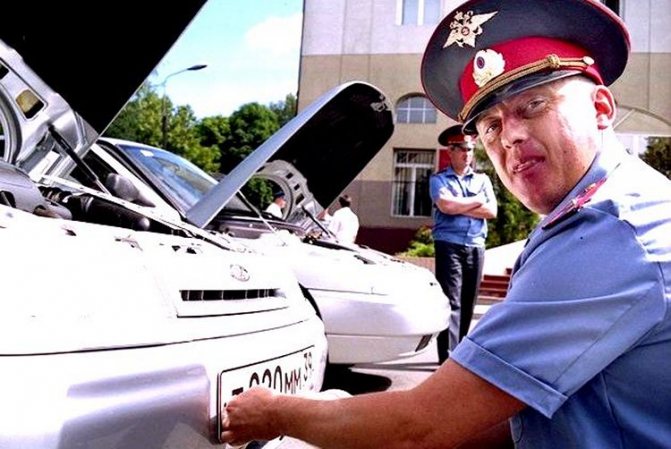
What to refer to in a complaint and how to argue in court
What types of violations can be committed by traffic inspectors when making a decision:
- Procedural violations (examples: a resolution is issued strictly no later than 15 days from the date of drawing up the protocol or: a government body is obliged to send a resolution to the parties in the case strictly no later than 3 days from the date of its issuance). Violation of the above deadlines by traffic police officers when issuing a decision gives you legal grounds to cancel it.
- Material violations (the offense was classified incorrectly; that is, you were charged by the traffic police under the wrong article).
- The offense charged to you has not been proven by a government agency (the traffic police officers do not have evidence confirming the offense charged to you, and you have evidence refuting their evidence).
Important
This stage is the most important, because the outcome of the case will directly depend on how you build your line of argument in court. Therefore, we recommend that you carefully study all the documents you have in your hands and determine all your strengths and weaknesses in this case.
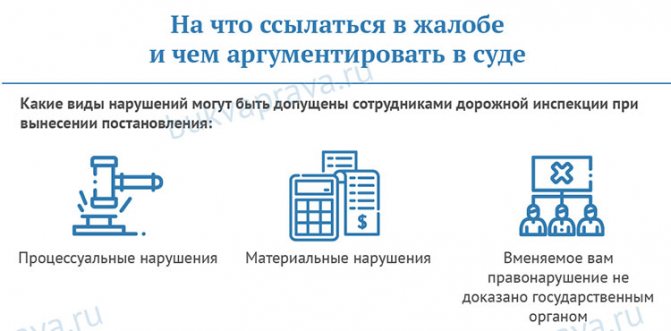
Popular fines and grounds for appealing them: information table
We propose to consider the grounds used for appeals, with the subsequent abolition of traffic police penalties:
| №/№ | Penalty | Reason for appealing the fine |
| 1. | For failure to register a car on time (Part 1, Article 12.1 of the Administrative Code) |
|
| 2. | For unreadability of car license plates, or their installation not in accordance with GOST (Part 1, Article 12.2) |
|
| 3. | For changing the type of license plates (Part 2, Article 12.2) | Possibility of reclassification into an unreadable license plate (the possibility of appeal depends on the specific circumstances and all the details of the video change). |
| 4. | For the fact of transfer of rights to drive a car (Part 3, Article 12.3; Part 3, Article 12.7; Part 2, Article 12.8) |
|
| 5. | For xenon mode (Part 3, Art. 12.5) | When referring to the fact of the illegality of the fine and indicating the technical regulations, with information about the lighting conditions and the color of the lights of the lighting devices. (possibility of appeal is average). |
| 6. | For tinting (part 3.1, art. 12.5) |
|
| 7. | For the safety belt (Article 12.6) |
|
| 8. | For violation of the speed limit (all parts of Article 12.9) |
|
| 9. | For driving at a prohibitory traffic light (part 1 and part 3, art. 12.12) | If there is video recording (high possibility). |
| 10. | For driving in oncoming traffic (Part 4, Article 12.15) |
|
| 11. | For a ban on the right to park a car (part 4 and part 5, art. 12.16 and art. 12.19) |
|
| 12. | For a pedestrian (Article 12.18) | When interfering with the movement of pedestrians: according to the law, if the pedestrian did not change his speed and vector of movement due to the car, then there was no violation (the chance of protest is high). |
What could be the outcome of an appeal?
This situation has 3 scenarios:
- Satisfaction of your requirements (cancellation of the decision made against you).
- Refusal to satisfy your demands (the decision against you remains in force, and you are obliged to fulfill it).
- The offense is considered minor and a penalty such as a warning is issued against you.
This is also important to know:
How much is the fine for expired licenses?
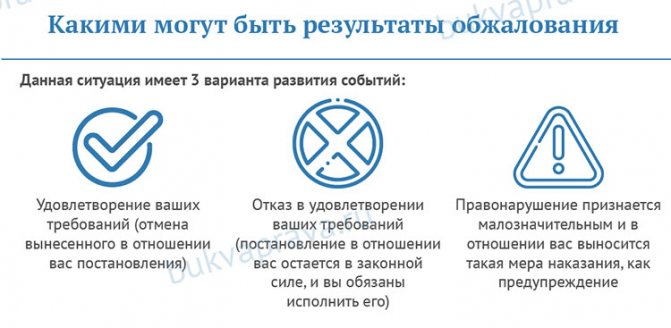
Which side does the court take when appealing a fine, judicial practice
When the Courts consider this category of cases, you should know: if a motorist and an employee of a government agency have an equivalent amount of evidence in the case, then the Court will always take the side of the government agency. However, examples from judicial practice allow us to assert that a responsible approach to the case and a well-prepared evidence base still helps to win and cancel illegal decisions on an administrative offense.
If you have received a ruling on an administrative violation and are absolutely sure that you are right and that you have not broken the law, we strongly recommend that you go to the end and fight. A huge number of drivers give up and don’t finish what they start because they “don’t believe in our justice,” without taking any action.
In such a situation, the help of a qualified specialist (lawyer) is almost always recommended, because not every citizen is able to detect an obvious violation of the law by a government agency when bringing you to administrative responsibility.
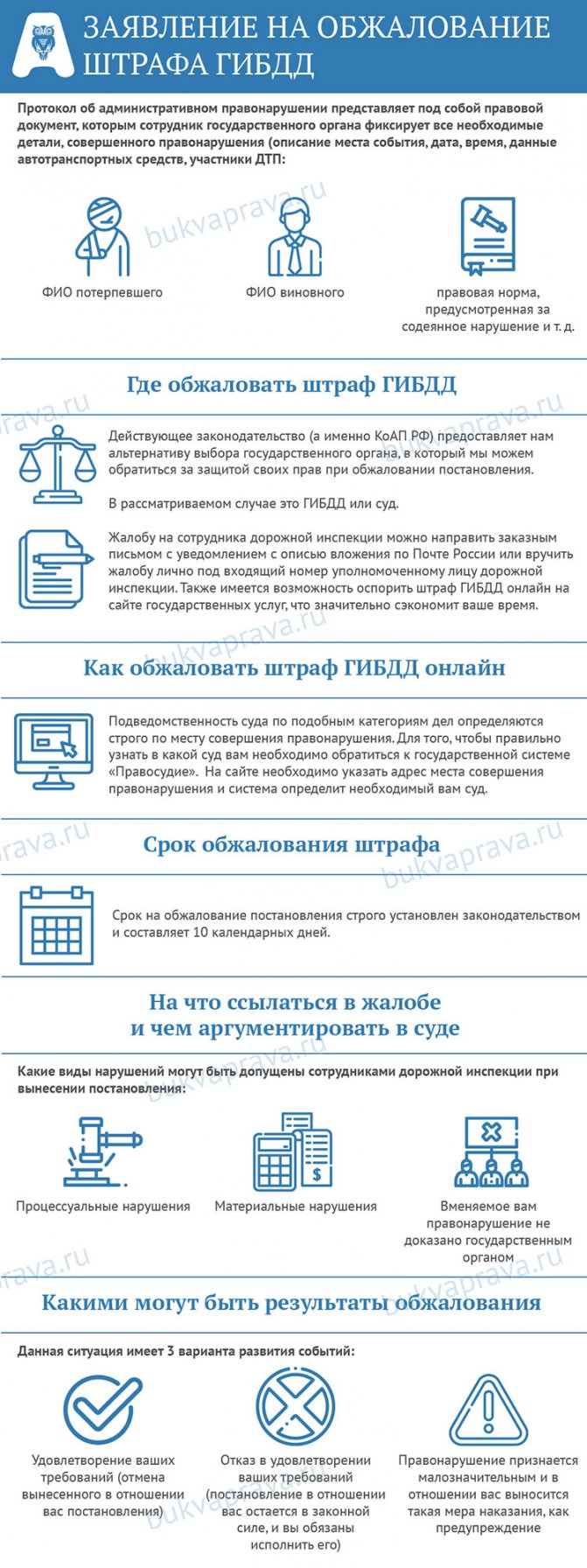
When to complain about a traffic police decision?
A resolution on an administrative offense is drawn up by authorized traffic police officers in cases where a gross violation of traffic rules is recorded (collision, accident, drunk driving). According to the Code of Administrative Offenses, for an administrative offense, a citizen undertakes to pay a fine (in a certain amount) or surrender his driver’s license with the right to reinstatement after a certain period of time (1-3 years).
There are often cases when traffic police inspectors at the scene of an accident may exceed their authority or deliberately draw incorrect conclusions regarding the culprit of the accident or the victim. For example, if the violation in the resolution is formulated incorrectly, and the jurisdiction of the offense is also incorrectly determined.
You can appeal a decision in cases where the victim believes that his civil rights have been violated and he is partially or not at all to blame for the incident.
Agreement on compensation for road accident damage.
Find out about the new road accident certificate form here.
How to file a claim for compensation of insurance payments, read the link:
We list some types of violations when drawing up a traffic police resolution:
- Gross violations: • If during the inspection of the car or examination there were no witnesses or their role was performed by the traffic police inspectors themselves. • The participants in the incident were not explained their rights and obligations. • If, when drawing up the protocol, important circumstances were not taken into account and the information and comments of the participants in the accident were not recorded. • If the resolution contains an incorrect classification of the violation committed. • If the person for whom the protocol was drawn up is not notified of the date and place of the consideration of the case.
- Minor violations: • Presence of typos in the document. • If the protocol is drawn up after 2 days after the incident. • The protocol contains no data or the offense is classified incorrectly.
Important! The resolution is drawn up on the basis of the protocol. During the consideration of the case, amendments may be made to the protocol regarding the location of the incident, the identity of the culprit, etc. After all the nuances have been clarified, a resolution is drawn up.
